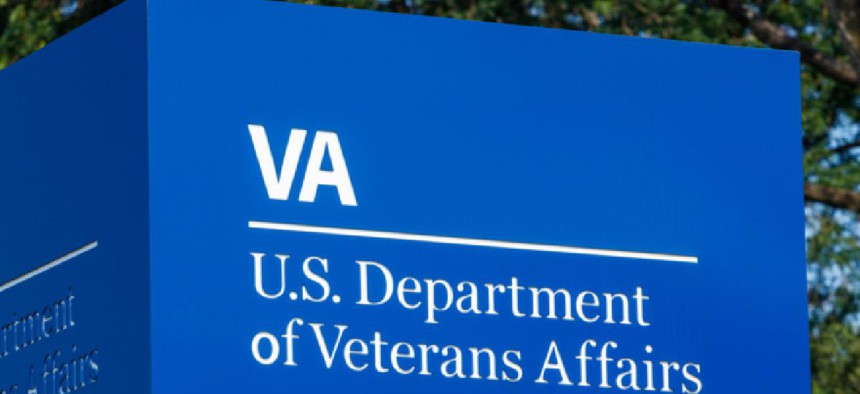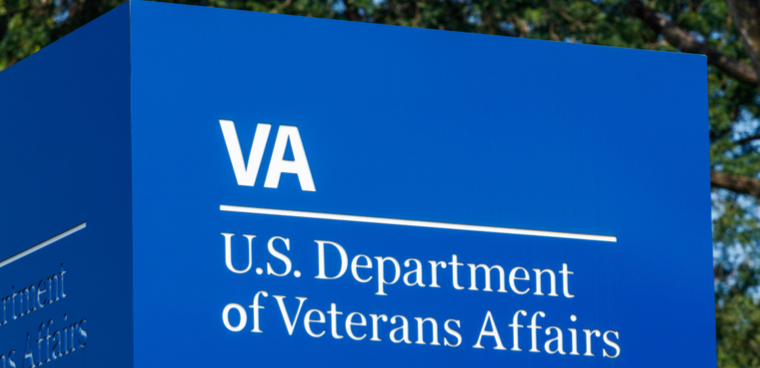COVID premium pay varies across Veterans Affairs

The lack of national direction from the Department of Veterans Affairs on issuance of pandemic "premium pay" has left regional VA networks and local facilities to decide which employees get additional pay for working on the front lines of the pandemic -- and how much.

The lack of national direction from the Department of Veterans Affairs on issuance of pandemic "premium pay" has left regional VA networks and local facilities to decide which employees get additional pay for working on the front lines of the pandemic -- and how much.
Premium pay is an umbrella term for additions to base pay, said Thomas Dargon, staff council at the American Federation of Government Employees, which represents 260,000 VA employees. There isn't a national VA policy guiding its distribution during COVID-19, he said.
At the St. Albans Community Living Center in Queens, N.Y., premium pay hasn't necessarily been given to all employees on the front lines working with COVID-19 patients, said Geddes Scott, the president of AFGE local 1988 in Queens, N.Y., in a press call hosted by AFGE.
There, premium pay has been provided in the form of performance-based awards. He's seen frontline nurses get $250, while other staff members not working directly in COVID-19 units receive awards over $3,000, he said.
"Which actually demoralized a lot of your frontline nursing staff," he said.
VA press secretary Christina Noel said that the agency uses "many pay authorities for recruitment and retention."
"Some that have been used to recognize staff during COVID-19 include premium pay, incentives, and special contribution awards," she said. All Veterans Integrated Service Networks and VA medical centers adhere to VA-wide fiscal and human resources policies and procedures in the administration of premium pay, Noel said.
Depending on your location, premium pay might be a flat amount or percentage-based, Dargon said. It's been called performance award, recruitment incentives, hazard pay and premium pay. It also differs based on whether it's a flat amount or percentage, he said.
Some Veterans Health Administration facilities have established COVID-19 units sectioned off to a floor or area in the building, and they might decide to give all employees in that unit a bonus, Dargon said. Other facilities might not specifically section off of COIVD-19 patients and the workers who come into contact with them.
"Then it becomes harder to determine who should qualify for a bonus," Dargon explained.
"Our frontline federal workers who are putting themselves in harm's way deserve to be compensated for this risk," said Sen. Chris Van Hollen (D-Md.) in an emailed statement to FCW. "I've pushed the Trump Administration to issue clear guidance for federal agencies to use their existing authority to do so. Their refusal has led to confusion at the VA and other federal agencies. This is unacceptable. I will continue urging the administration to provide this vital support to these workers."
The provision of premium pay for frontline federal workers was an issue earlier this year in the COVID-19 relief HEROES, Health Economic Recovery Omnibus Emergency Solutions, bill, which was introduced in May by Democrats in the House and passed that month. It included the provision of premium pay for federal employees. However, that provision wasn't included in the updated version passed in the House on Oct. 1.
Lawmakers and the White House announced agreement on a $900 billion COVID-19 relief package in the early evening on Dec. 20, but details have yet to be made public on many provisions.
Barbara Galle, president of AFGE Local 3669 in Minneapolis, said that she's seen inconsistency in the provision of premium pay.
"You have lack of accountability and transparency," she said. The standards for premium pay in at her workplace have had "a lot of little nuances."
"They don't tell us anything," said Regina Smith, the president of AFGE Local 424 out of Baltimore. She's also seen a wide range of hazard bonuses among staff. "I'm hearing people got $200. I'm hearing people got $3,000. I'm hearing people got $500. I'm hearing people got $5,000," she said.
The catchall term of "premium pay" is more general than hazardous duty pay, which has more specific requirements. The agency is not providing hazard pay to VA employees.
"Hazard pay is to compensate employees when risks cannot be reasonably mitigated and employees cannot be safely protected, and that is the opposite of the current environment at VA," said Noel. "VA continues its efforts to provide support and resources to our employees who confront the risk of exposure to COVID-19."
The union has pushed for hazard pay since the onset of the coronavirus pandemic.
"The agency has not sufficiently mitigated the adverse effects of COVID," said Dargon.
In March, the union also filed a class action lawsuit against the federal government seeking 25% hazard pay for general schedule plaintiffs. The lawsuit alleges that they are being exposed to a "hazardous working conditions" not accounted for in OPM position classifications under Title 5. The lawsuit also included wage grade plaintiffs as being due for an 8% pay increase for environmental exposure.
Plaintiffs include employees in the VA, as well as some in the Bureau of Prisons, Department of Agriculture, Labor Department and others.
In the last few weeks, the government filed a motion to dismiss, said Heidi Burakiewicz, KCNF lead attorney with the lawsuit. She said that they're currently working on their opposition to motion to dismiss.



